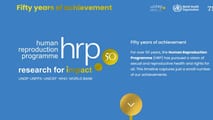The ECLJ Admitted as Amicus Curiae in the Italian Crucifix Case Before the European Court of Human Rights
 (May 12, 2010) – Strasbourg, France – The European Court of Human Rights (ECHR) today informed the European Centre for Law and Justice (ECLJ) that it is authorized to become a third party (i.e. amicus curiae) to the “Lautsi v Italy” case, more commonly known as the “Crucifix” case. The ECLJ will submit its written observations to the ECHR Grand Chamber on May 26th. The Grand Chamber will hold a public hearing on June 30th. The final judgment will be published by the end of the year.
(May 12, 2010) – Strasbourg, France – The European Court of Human Rights (ECHR) today informed the European Centre for Law and Justice (ECLJ) that it is authorized to become a third party (i.e. amicus curiae) to the “Lautsi v Italy” case, more commonly known as the “Crucifix” case. The ECLJ will submit its written observations to the ECHR Grand Chamber on May 26th. The Grand Chamber will hold a public hearing on June 30th. The final judgment will be published by the end of the year.
In its written observations, the ECLJ will demonstrate that the presence of the Crucifix in the Italian schools is legitimate - that it is not disrespectful to other beliefs, and that nothing in the European Convention of Human Rights can be interpreted as imposing secularism in the context of public education.
The Lautsi case has been referred to the Grand Chamber of the Court after the Italian Government appealed (on January 28th, 2010 – see the appeal here) a first decision (see the decision here) issued by the Second Section of the Court last November 3, 2009. In this first decision, the Court ruled that the presence of the crucifix in the classrooms is “contrary to parents’ right to educate their children in line with their convictions and to children’s right to freedom of religion” because the Italian pupils would feel “educated in a school environment bearing the stamp of a given religion.” The Court continued affirming that the presence of the crucifix could be “emotionally disturbing” for Ms Lautsi’s child, and that, most importantly, its display could not “foster critical thinking in pupils” and “serve the educational pluralism that was essential to the preservation of a “democratic society.” The Court concluded that there had been a violation of Article 2 of Protocol No. 1 (right to education) taken jointly with Article 9 (freedom of religion) of the Convention.
This ruling has been strongly criticised by political and legal experts and denounced by several European States as an imposition of “secularism” upon the diverse European societies. In particular, it has been reaffirmed that the European Convention of Human Rights has never required that the State must “observe confessional neutrality in the context of public education,” or any other public sector. In fact, a number of Member States of the Council of Europe are “confessional States” with either an official religion or an acknowledgment to God in their laws and constitutions. In granting last March the referral before the Grand Chamber of the November decision, the Court has recognized that the November decision raised serious legal issues and must be reconsidered.
Last April 29th, the Italian Government submitted its memorandum to the Court (See the Italian April 29th memorandum here) explaining that the Judges of Strasbourg have no competency to impose the secularization of any country, and especially Italy, a country characterized by its overwhelmingly Catholic religious practice and identity.
Several Member States, including Malta and Lithuania, as well as 9 NGOs* (non-governmental organizations), have also been authorized to join the case before the Grand Chamber. Such direct participation of several member States as third parties in one single case is absolutely unprecedented. They all proceed in support of the legitimacy of the public display of the crucifix. Also exceptional is the broad support granted to the ECLJ by a large number (79) of Members of Parliaments from various European and political parties who have joined the case with the ECLJ. (see the full list here).
In order to prepare its brief and to provide legal arguments to the other parties to the case, the ECLJ has already shaped an extensive legal memorandum of the Lautsi first decision. (see here).
In its legal memorandum (see here), the ECLJ emphasizes that the November ruling held the Italian Government to an inappropriate standard, demanding that the State “uphold confessional neutrality in public education” when it determined that that the Italian government may not merely display a crucifix in state school classrooms because of the potential coercive effect. The ECLJ concludes that the Lautsi Court seriously erred when it determined that Italy violated Article 2 of Protocol No. 1, taken in conjunction with Article 9 of the European Convention on Human Rights (“ECHR” or “Convention”) because it excluded pivotal considerations due the member states, such as the margin of appreciation and the manner of state action. As the Court has recognized time and again, the Council of Europe member states must be given a wide margin of appreciation on matters of education and religion. The European Court of Human Rights has never before imposed principles of pluralism in a vacuum, and the ECLJ contends it cannot do so now. The ECLJ contends that demanding the newly minted standard of “confessional neutrality” apart from Italy’s history and tradition cannot be done without flagrantly disrespecting sovereignty safeguards set in place.
As stated by Dr Grégor Puppinck, Director of the ECLJ, “Real pluralism shall first apply within Europe and begin by respecting the various European societies in relation to culture, identity and religious traditions. A decision imposing secularism throughout Europe is the exact opposite to the values of pluralism, respect, and cultural diversity.”
* The 10 NGOs selected by the Court as third parties are:
- Individual brief : Associazone nazionale de libero Pensiero
- Individual brief : Eurojuris
- Individual brief : ECLJ
- Joint observations : International Commission of Jurists, Interights and Human Righst Watch;
- Joint observations : Zentralkomitee der deutschen Katholizen, Semaines sociales de France and Assiciazioni cristiane lavoratori italiani.
* Related documents
- ECHR November 2009, Lautsi v. Italy decision
- Memorandum of the Italian Government from January 28th, 2010
- Memorandum of the Italian Government from April 29th, 2010
- ECLJ legal memorandum from April 2010
- List of Members of Parliament joining the ECLJ as third party.
The European Centre for Law and Justice (ECLJ) is an international law firm focusing on the protection of human rights and religious freedom in Europe and worldwide. The ECLJ is affiliated with the American Center for Law and Justice (ACLJ) which focuses on protecting religious freedom in the United States. Attorneys for the ECLJ have served as counsel in numerous cases before the European Court of Human Rights. Additionally, the ECLJ has special Consultative Status with ECOSOC of the United Nations, and is accredited to the European Parliament.



.jpg)




